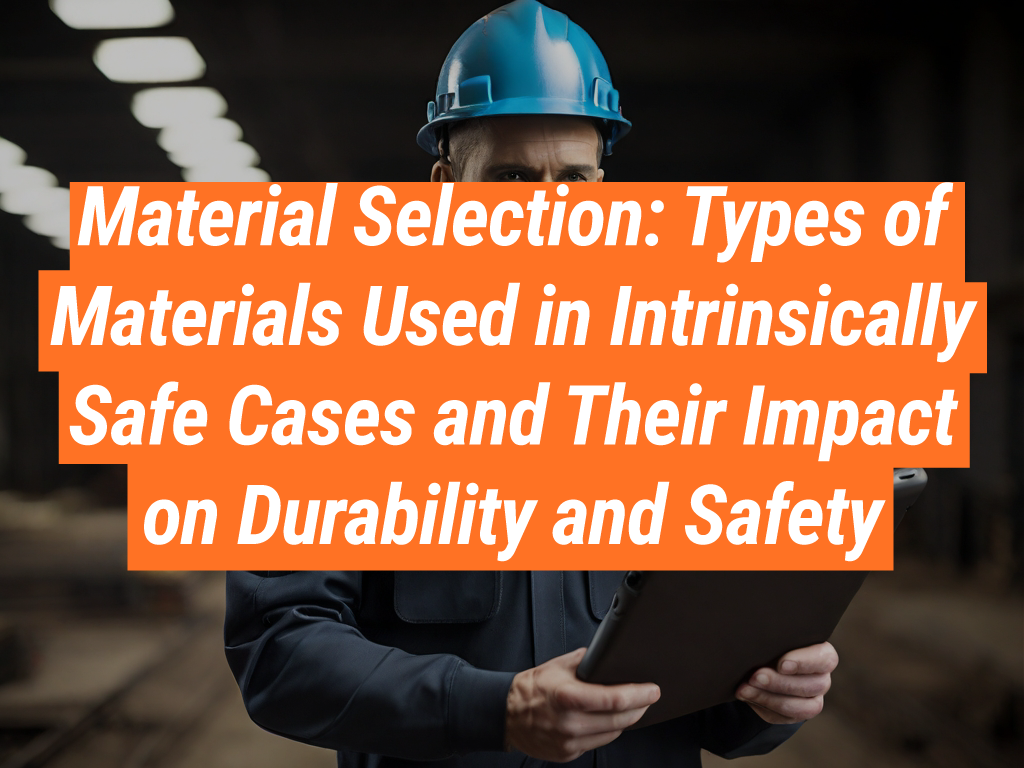Welcome to the Intrinsically Safe Store, your one-stop-shop for all your safety equipment needs. We are dedicated to providing you with the most reliable and durable intrinsically safe cases made with high-quality materials in the market. Visit our website to explore our wide range of products.
Understanding Intrinsically Safe Cases
Intrinsically safe cases are designed to prevent the ignition of flammable gases, dust, or vapors in hazardous environments. They are built to withstand extreme conditions and protect the enclosed device from potential damage. The choice of material used in these cases significantly impacts their durability and safety.
Types of Materials Used in Intrinsically Safe Cases
There are several types of materials used in the construction of intrinsically safe cases. These include:
- Polycarbonate: Known for its strength and durability, polycarbonate is a popular choice for intrinsically safe cases. It is resistant to impact, heat, and UV radiation, making it ideal for harsh environments.
- Stainless Steel: Stainless steel cases offer excellent resistance to corrosion and high temperatures. They are also easy to clean, which is crucial in certain industries like food processing or pharmaceuticals.
- Aluminum: Aluminum cases are lightweight yet robust. They offer excellent thermal and electrical conductivity, making them suitable for electronic devices.
Impact of Material Selection on Durability and Safety
The choice of material directly affects the durability and safety of intrinsically safe cases. For instance, polycarbonate cases are highly durable and can withstand high impact forces, making them ideal for rugged environments. On the other hand, stainless steel and aluminum cases offer superior heat resistance, making them suitable for high-temperature environments.
Moreover, the material’s resistance to corrosion and chemical reactions is crucial in industries where the cases may be exposed to corrosive substances. Stainless steel, for example, is highly resistant to corrosion, making it ideal for such environments.
Case Study: The Role of Material Selection in Intrinsically Safe Cases
A study conducted by the National Institute for Occupational Safety and Health (NIOSH) highlighted the importance of material selection in intrinsically safe cases. The study found that cases made from materials with high impact resistance, such as polycarbonate, significantly reduced the risk of device failure in hazardous environments.
In conclusion, the material used in intrinsically safe cases plays a crucial role in their durability and safety. Whether it’s polycarbonate, stainless steel, or aluminum, each material offers unique benefits that make it suitable for specific environments and applications. Therefore, it’s essential to consider the operating environment and specific requirements when choosing an intrinsically safe case.
At the Intrinsically Safe Store, we offer a wide range of intrinsically safe cases made from various materials to cater to different needs. Contact us today to find the perfect case for your needs.



